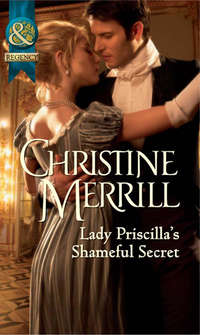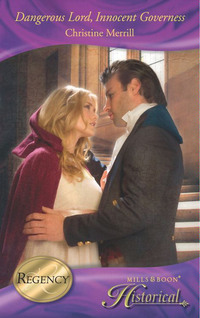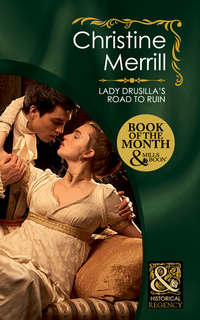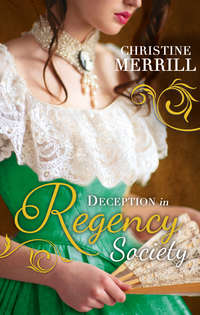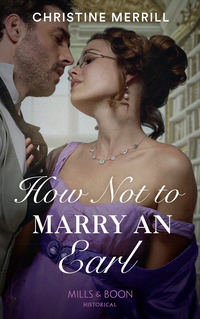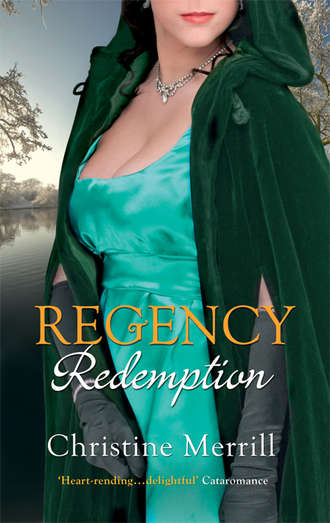
Полная версия
Regency Redemption: The Inconvenient Duchess / An Unladylike Offer
‘Of course, your Grace.’ The man was fairly drooling at the prospect.
‘I’ve seen some fine work recently, letters posted to my late mother, and am looking for the purveyors of the papers in question. Would you be able to identify things you’ve supplied to others, so that I might know I have found the correct store? I’ve tried several, but have been unsuccessful.’
‘Would it not have been easier simply to ask the senders of the letters to give you direction?’
Marcus responded with a look so cold that the man was immediately sorry he had asked.
‘But of course, if it is my work, I would recognise it. Perhaps … if I could see the letters?’
Marcus fanned the pack of blackmail notes on the counter before him.
His eyebrows arched. ‘All the same signature and ink, and all different papers.’
Marcus said, ‘The contents of the notes need not interest you. It is the paper I am wondering about.’
The man cleared his throat. ‘The words, of course, do not concern me. But I find the ink interesting. Not a particularly good brand for the paper. And the writer could have done with a new quill. May I?’ He reached for the letters.
Marcus nodded.
The man held them up to the light. ‘Three different watermarks. I know these two. They are clients of mine. The third is from a shop in Bond Street, but I recognise the coat of arms of the client. The fourth?’ He shrugged. ‘It does not match the others. It is a good grade, but a common paper, available in most of the shops in London. As it happens, I recognise the pressed monogram, which has been rubbed flat here at the top of the page. The writer seems to have been trying to disguise the origin of the paper. This was sold by our shop to a cit. A factory owner, I believe.’ He laid the papers back on the desk. ‘Is this sufficient information, your Grace? I would do nothing to jeopardise the privacy of my customers.’
Marcus smiled in a slow, expansive way that hinted of gold to come. ‘Of course. I would not want anyone jeopardising my own. Should I choose to shop here, I would want to know that my business remained secret.’ He fanned the letters, then stacked them and folded them, making them disappear into the pocket of his greatcoat. ‘But I am curious on one point. Do these customers live in the vicinity of your shop?’
The man shook his head. ‘As a matter of fact, they don’t. Not frequent customers. If you give me a moment, I could perhaps find addresses for them. If you care for references?’
Marcus smiled more warmly. The man had hit on a more convincing lie than he had been able to create. ‘References. That would be most helpful. And while you are gone, if I might see a sample book, I will begin making my selections.’
He left the shop, having placed an order for more paper than he and his new duchess could use in several years of industrious writing.
And a map of east London and outlying villages, where the homes of three minor lords and a cit lay within a three-mile radius of each other. It was not much. There was no guarantee. But it gave him a place to look for the mysterious Cecily 101.
Chapter Nine

The staff stood before her, terrified. Clearly, they had heard the contretemps below stairs, and were all hoping that the next sacking would be someone other than themselves.
She tried to return a gaze that was cool and indifferent. ‘By now, you all know the fate of Mrs Clopton. This will, of course, cause a certain amount of disarray below stairs, but …’ she paused to run a hand along the woodwork and wipe the smudge into her handkerchief ‘. I care more for the state of things above stairs, and doubt that anything I’ve done could create greater disorder than was here already.’ She smiled. ‘My difficulties with the previous housekeeper were based solely on the errors in the accounts and the state of the house. I assume that these problems are now solved. If I am mistaken, I wish that you will come to me and that we can reach a solution. I will be replacing Mrs Clopton shortly, and we will manage as best we can until that point. In the mean time …’ she presented a list of tasks ‘… I would have you begin in the entryway and continue through the house, with a thorough cleaning. I’ve written the procedure I would have you follow and a few of the cleaning formulas I wish you to use.’ The looks of wariness on the faces of the maids were replaced by a grudging respect.
‘And since it has been so very long since things have been done properly, I believe more help will be needed. Jenny?’ She gestured to the chief parlour maid. ‘Do you know anyone in the village in need of work? Older sisters? Aunts?’
Jenny allowed as how she might know a few girls and was sent to the village to fetch them. The rest of the women were divided into teams and began conquering the tasks on the list in each of the reception rooms. Once things were underway, Miranda felt it safe to retire to the study and hope that she could find some means to pay the expenses she was about to incur.
She sat down at the desk. Her husband’s desk, she thought nervously, then willed herself to relax. The chair was imposing but comfortable. Fit for a duke. She let an imagined sense of power envelope her, and pressed her hands flat against the mahogany surface in front of her, surveying the room. It was cleaner than the rest of the house. Perhaps Mrs Clopton was unable to defy the duke in such an obvious way. The desk was clear of paper, the ink well filled, the pens clean and of good quality. It was an orderly and comfortable workspace. Her husband must spend much time here, when he was on the estate.
On an impulse, she reached for a drawer pull, expecting to find it locked. It slid open easily, and she peered inside. Resting at the top of a stack of papers, as though hurriedly discarded, was a sheet of paper covered with notes.
The hand was clear and firm, not rushed. Miranda had heard that it was possible to tell the soul of the writer by the way he formed his letters. If so, her new husband was—she studied the paper—strong. Decisive. There was no trace in the writing of the anger she’d seen in him.
She read the words. There was a short list of supplies—for the estate or the tenants, she knew not. Neat rows of figures, totalled accurately and without hesitation. And nearer the bottom of the page a reminder to call on the vicar first thing in the morning. She smiled and traced the line. He’d written it the night she’d arrived. And below it was a single word: MIRANDA?
She could almost hear it, as though he were there, speaking to her. And how strange, because the tone she imagined was not one she’d heard from him in life. The voice she imagined was soft and inviting, and full of promise.
A soft cough from the direction of the doorway indicated the presence of Wilkins. ‘Your Grace?’
She slid the drawer closed and looked the butler in the eye. ‘Yes, Wilkins?’
‘I have something I …’ He dropped his hands to his sides in defeat. ‘I’m afraid I must give notice, ma’am.’
Oh, dear. She had been afraid this might happen, but could she stand the loss of both main retainers? ‘I’m sure his Grace would be most disappointed to lose you, Wilkins. What is the reason for this sudden decision?’
‘I rather thought, your Grace, that once you got the lay of the land, you would be asking me to leave. I’m just saving you the trouble.’
‘I appreciate your honesty. And your coming to me, like this. Despite what I told the staff just now, the problem with Mrs Clopton …’ she sighed in exasperation ‘… was not so much the crime—which was bad enough, certainly—but her unrepentant attitude. How can I run a house when the house-keeper thinks me such a fool as to be bullied into accepting her flimsy excuses out of hand?’ She looked steadily at the butler. ‘Is there something you would like to discuss, Wilkins?’
‘Ma’am, when you get around to inventorying the cellars, you will find that there is much I have to account for.’
‘And is there no way to make up the difference?’
‘None that I can think of, ma’am. May I speak frankly?’
‘Please.’
‘The wages in this house have long been the talk of the district. You’ll find it hard to replace the housekeeper, once they hear what is offered, and what is expected. And my own wages, even supplemented by the occasional stolen brandy bottle, are insufficient to meet my needs and repay his Grace.’
She held up a hand to him. ‘Let us say no more about your leaving at this time, Wilkins. It is certainly not a problem that needs to be dealt with before my husband’s return.’
There was a polite knock and a chambermaid poked her head around the doorframe. ‘Your Grace? Something awful’s happened in the dining room. Come quick.’
Had the first day of her new regime been marred by an accident? Had someone fallen off a ladder? She’d forgotten to check on their stability before sending the footman to bring down the chandeliers.
When she entered the dining room, she saw that the problem was far worse, at least in the eyes of the maids.
‘We tried the formula you suggested for the walls, but look what happened.’ They were lined obediently up at the end of the room, waiting to be sacked.
She glanced up at the silk covering the walls and stood mesmerised in shock. The sheep that had been grazing on the green of the hillside were either totally obliterated or oozing towards the wainscoting. The shepherd who had been looking in adoration at his shepherdess was still largely extant, but his smile had been replaced by a runny leer before the maids had given it up as a bad job and run for help. ‘Hand painted,’ she muttered under her breath. ‘It would have done well for regular paper. Even for patterned silk.’
‘We only did what you requested, your Grace.’ There was no trace of sarcasm in the comment, only fear. The poor girl was waiting for her to explode.
‘Yes, of course you did. It was my fault for not thinking of the surface to be cleaned before making that suggestion. There is nothing to be done for it now. We will have to replace the wall coverings. Please continue cleaning the windows, the floors and the fireplace. But do not worry about the walls until I can think of what is to be done.’
She trudged down the hall to her room. What was to be done was to have a megrim, alone in her room. Surely that was allowed. She would have to order new silk from the shops in the village. She doubted they would have anything appropriate. Something could be brought from London. And she had not a penny in her pocket, or any idea how to get one.
She smiled to herself. If she was a duchess, then perhaps she no longer needed money. She could not remember, on outings with her mother, ever seeing a coin change hands. Even after the money was gone, the shopkeepers extended them credit because of her father’s title, lowly though it was. All she need do was ride into town surrounded by the Haughleigh livery, find an appropriate sample and point. It would be delivered in all due haste, and might be hung on the walls before her husband returned to find her mistake.
He would, of course, be angry. But in the two days she had known him, he had been angry about so many things that she doubted one more would make a difference.
Supper that evening was a very different affair than breakfast had been. After a short nap, she had composed herself and returned to the kitchen to confront the cook. The woman had been wary at first, but when she was told that she might choose her own ingredients and order what was needed to undo the artificial famine created by Mrs Clopton, she seemed most happy with the change.
Miranda, at Polly’s insistence, allowed her hair to be dressed and changed into her only decent gown for supper. The gown was a burgundy satin that had been much more fresh fifteen years ago, when it had been one of Cici’s ball dresses. They’d cut down the puffed sleeves, removed large amounts of skirt to hide the worn spots and managed, by cannibalising the train and adding some lace from another gown, to create something almost presentable.
St John met her at the dinner table and kissed her hand. ‘Enchanted as always, my dear. You look lovely this evening.’ He looked over his shoulder at the destruction on the walls. ‘Dear God, what happened in here?’
She sat and took a large sip of wine before speaking. ‘My first act today, as duchess, was to fire the housekeeper. My second was to destroy the dining room, attempting to clean it.’
‘The wall coverings,’ he said, ‘were imported from France by the second duke.’
‘Expensive?’ she asked.
‘Irreplaceable.’
‘Oh. And what is the current duke likely to say, when he realises they are gone?’ She held her breath.
‘I suspect that you will have done me a great service. The apoplexy will leave you a widow and me as the fifth duke. I will then absolve you of any guilt. They were uncommonly ugly, for all their value.’ He reached forward and snuffed several candles on the table, darkening the corners of the room. ‘And hardly visible now. Isn’t this much more intimate?’
She laughed, despite herself. He seemed pleased, and continued to amuse her during dinner.
After the meal he stood up and offered her his arm. ‘Would you like to retire to the drawing room, your Grace? Or would you prefer a more interesting pastime? I could give you a tour of the house, if you wish.’
‘It would be dark in the unused rooms,’ she protested.
‘Then the servants can go ahead and light our way. It is their job, after all, Miranda, to follow your instructions. But suppose we limit ourselves to a single room. It will further your education and not trouble the servants overly much if we spend the evening in the portrait gallery.’
‘That is an excellent idea, St John.’
He rang for the butler, explained their needs and then escorted her to a long room on the second floor. Once there, he entertained her with stories of his ancestors. The first duke, awarded the title after a battle. His son, the mad second duke. Their father, who had been killed in a riding accident when both boys were young. He stopped before a portrait of his mother, and seemed to pause in respectful silence.
She looked up at the face in the painting. Definitely mother to St John, with the same startlingly blue eyes, but with hair so blonde as to be almost white. She was as pretty as Cici had said, and Miranda looked for any indication that the woman was a threat, but could find none. There was nothing in her face to show that she was other than sweetness and light.
She compared the mother to the picture of her new husband. Even for the portrait, he had not managed a smile. The painting in front of her must be several years old. There was no grey in his hair and the face had fewer lines. But the look in the eyes was the same intense stare that she had seen. Eyes that did not miss much, she thought. They were judging her as she stood in front of them, holding her fast and looking deep into her soul.
She shuddered. If only he would smile at her, perhaps the effect would not be so disturbing. There had been kindness on his face during the wedding. And when he put her to bed the night before. He had not seemed at all frightening to her then, when she had felt a protective warmth radiating from him, that had drawn her to him. Perhaps, when he returned from London, things would be different.
If he returned.
She tore her gaze away from her husband and walked a few steps further down the gallery to where St John stood before the portrait of another beautiful woman. When he turned from the painting and looked to her, there was a tear in his eye.
‘I’m sorry,’ she whispered. ‘I did not mean to interrupt.’
‘Quite all right, Miranda, dear. It was I who brought you here, and then I was rude enough to forget that fact.’
She looked up at the painting he had been admiring. It was of a beautiful blonde woman in a rose-coloured gown. But beautiful was too mild a word. The woman was radiant. Her hair was gold and her cheeks a delicate pink overlaying the cream of her skin. Her breasts were high and round, and outlined against the curve of her bodice. Her height must have been almost a head below Miranda’s own. And yet the painting was more than life size, and she felt dwarfed by it.
‘This is Bethany. She was quite the loveliest woman ever to grace this house.’
‘Is she an ancestor of yours?’ Even as she said it, she revised her estimate. The gown was only slightly out of fashion. This woman must be her contemporary.
‘No ancestor of mine. But you have much in common with her. You share a husband. Bethany was my brother’s first wife.’
She stared in stunned silence. No wonder he was angry to find himself attached to a dowdy hen after losing this angel. ‘And she died in childbirth?’ She could see how it was possible. The narrow-hipped girl in the picture scarcely seemed large enough to bear a child.
‘That is what they say.’ His voice was strangely flat.
She stared at him in curiosity. ‘Do you have any reason to doubt the story?’
‘Oh, she died in childbed, sure enough, but I always thought …’ he sighed ‘… had she married happily, the end might have been different for her.’
‘She was not happy?’ It seemed so odd that a woman such as this would not have been happy.
St John’s smile was tight-lipped. ‘You have met my brother, Miranda. And seen his moods. It was like throwing a butterfly into a storm to wed the two together. They were married less than a year when she died, but her spirit had fled long before her body failed her.’
‘But, why—?’
‘Why did she marry him?’ St John sighed. ‘Why would any woman choose my brother? Be honest, my dear. For the same reason that you came to him.’
Desperation, she thought, bitterly.
St John continued as though an answer wasn’t required. ‘The title. Say what I might about him, my brother is a powerful and a rich man. There is much temptation in that. And she had much to offer.’ He paused, looking back at the picture. ‘This does not do her justice. Her eyes were bluer than that. Her hair more gold, and soft as silk to the touch. She sang like an angel, and her laugh itself was music. And she was delicate. To look at her made you think of a crystal goblet.’ His eyes grew hard. ‘My brother saw her once and knew he must have her. She was dazzled by his wealth and went willingly into his arms.’ His body tensed. ‘And when I saw her, just a few months after the marriage, she was desperate to get away. He terrified her. When I think of her, soft as a rose petal, in the hands of that—’ He choked on the last word, unwilling or unable to say what he was thinking. ‘But there was nothing I could do. I was only eighteen, had no power, no money to offer her.’ He gripped her by the shoulders and spun her to look at him. ‘I will not make the mistake again. Miranda. My means are limited, but, should you need them, all I have is yours to command.’
She struggled for a response. Foremost in her mind were the words, too late. ‘If you had a warning to share, yesterday would have been a better time than today.’
‘Yesterday my brother was still in the house and the servants obey him, not me. He’s gone, now, and I can speak freely. Say the word and I will help you flee and you can be long gone before he returns.’
Flee to where? There was no home to return to, no friend to take her in. ‘I am not afraid of the duke,’ she lied. At least, with Cici’s training, and St John’s warning, she would not go into the marriage as empty headed as the late Bethany. Foul words left no mark and bruises healed. And if the duke threatened her with worse, she would cross that bridge when she came to it.
‘I thank you for your kind offer, and will remember it if I need you, but am sure it need not come to that.’
Chapter Ten

Marcus looked up at the fading paint on the inn’s sign: The Duke’s Right Arm.
It sounded promising. Lucky, if he believed in luck. But the picture, which was of a dismembered arm lying on a grassy background, spoiled the image he wanted of a place that offered aid and succour. It would have been his last choice if he needed a bed for the night, or a drink, for that matter. The windows were dirty, and the door forbidding. It was his last choice now, as he’d visited all the other inns in the area.
Gentle questioning of the innkeepers had revealed a thorough knowledge of the area’s great houses and their inhabitants. Everyone knew the local lords, and their families. If he combined the information gained from the various places, he had a good idea of the comings and goings of the guests in the area. Small amounts of gold, spread amongst the ostlers and stable boys, told him all there was to know about who had visited whom and what they drove to get there.
And no one, anywhere, knew anything of Miranda Grey or Cecily Dawson. Or recognised the vague description he could give of a woman in her fifties and her tall ward.
They were not members of any of the families. They had not stayed in any of the inns at times corresponding to the dates on the letters. They had not been seen travelling. They were not known to be residing in any of the places he had visited.
Short of barging up to the front doors in question and demanding to know how Cecily had come by her writing materials, there was little hope in that direction.
This was his last chance. A disreputable inn in a miserable village that was little more than a cluster of cottages for workers at the nearby textile mill, owned by the cit whose stationery he kept folded in his pocket. It was not the place he wanted to find information about his new wife, but it made an irritating sort of sense. The factory owner’s stationery had been used to write the last of the letters to his mother. If the writer had worked hardest to create a good impression for the first letter, perhaps she’d grabbed what was closest to hand when writing the last.
He opened the grimy door and stepped into the taproom of the inn, and all faces turned towards him. The wave of disdain from the other customers was palpable.
He stepped forward and took a seat, staring back and daring them to find his presence strange. The thought crossed his mind that no one knew his location, and his purse was dangerously heavy. If he did not watch his back on the way out, he was likely to finish this search by receiving a knock on the head and a push into the nearest ditch.
The serving girl fixed him with a sullen glare, not bothering to flirt or flounce. Apparently, she felt the chances of gaining a few coppers by courtesy were not worth the effort. Without asking for his order she put a pint of ale in front of him. ‘If you want else, go elsewhere. You get what we have.’
He caught her wrist as she turned away from him. ‘Maybe you can help me. I’m looking for two women.’
She pulled her arm out of his grasp. ‘I said, this is all we serve. You will get nothing more from me.’
‘I apologise for the familiarity.’ He tried to look as harmless as possible. ‘I need nothing more than information.’
‘You’ll find little of that here.’ Her gaze never wavered. ‘But I can offer you advice. We serve ale. It sits in front of you. Drink it and go back where you came.’
He laid a gold coin from his purse on the table in front of him and she glanced at it hungrily. ‘Cecily Dawson. Or Miranda Grey. Have you ever heard the names?’
For a moment her eyes sparkled with something more than lust for the gold in front of her. Then she walked back to the bar and muttered something to the man behind it. He cast a look in Marcus’s direction, and they conversed between themselves. The girl was trying to persuade him of something and he was shaking his head. She persevered. At last, he shrugged and ambled towards the table.


